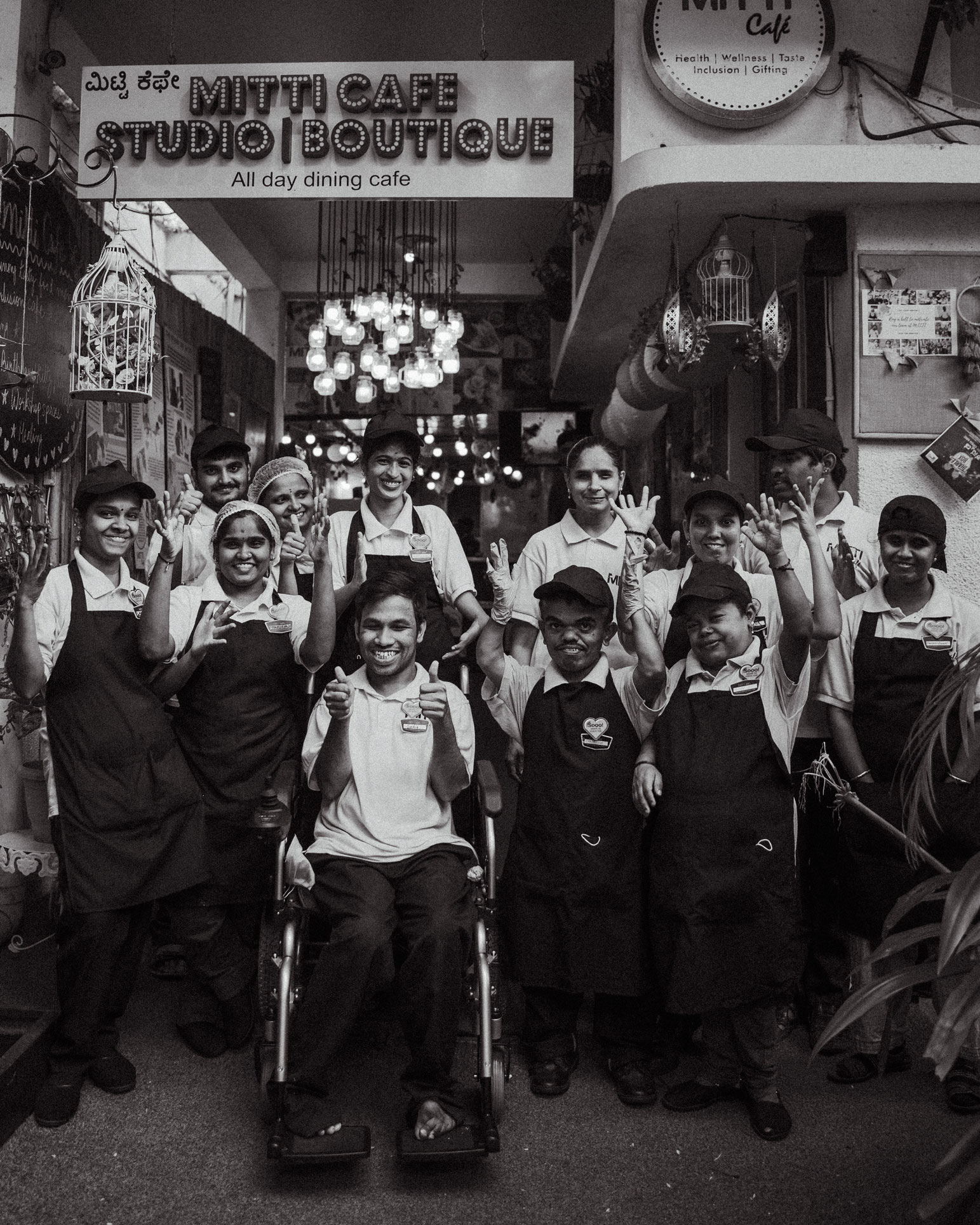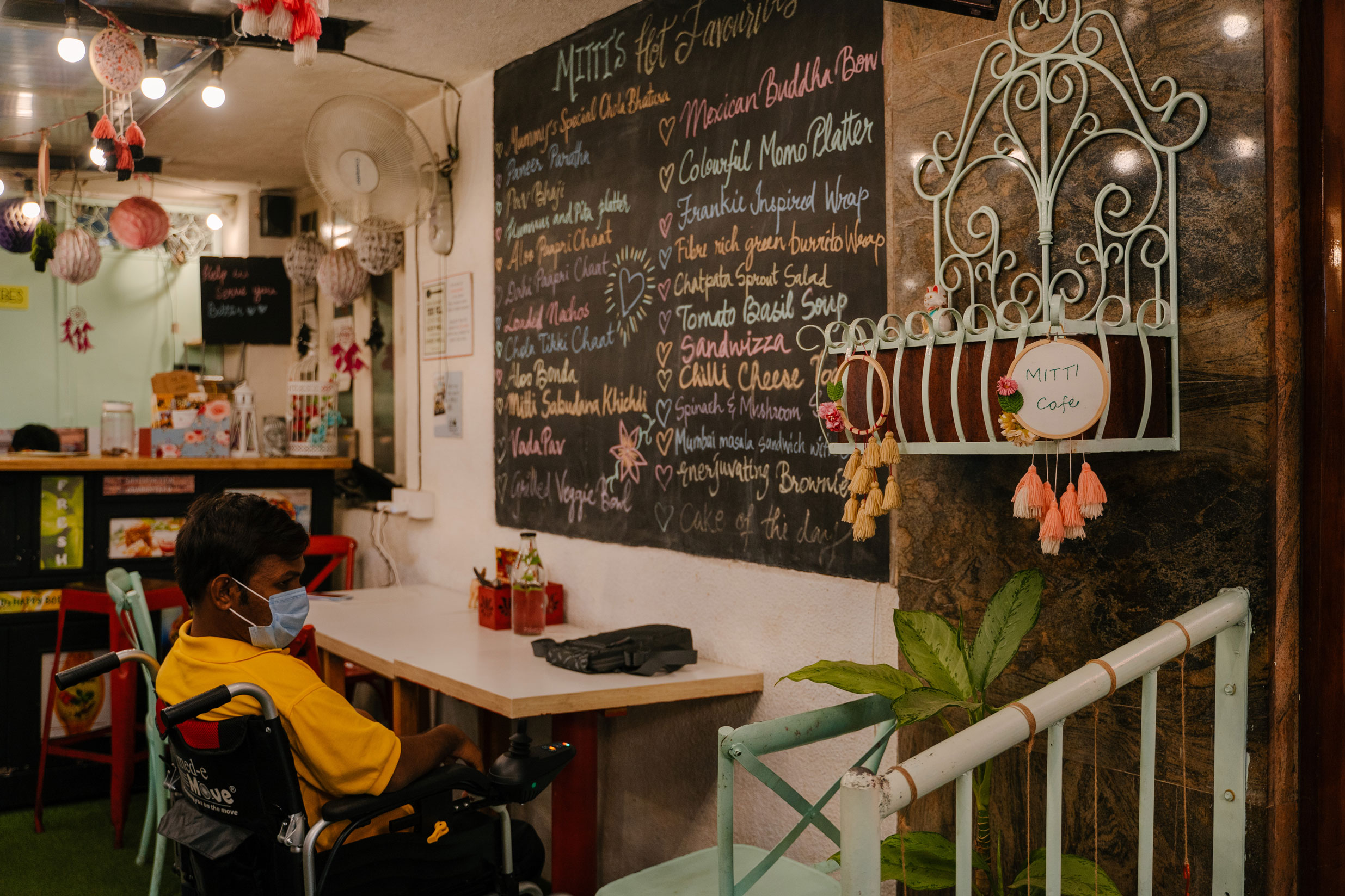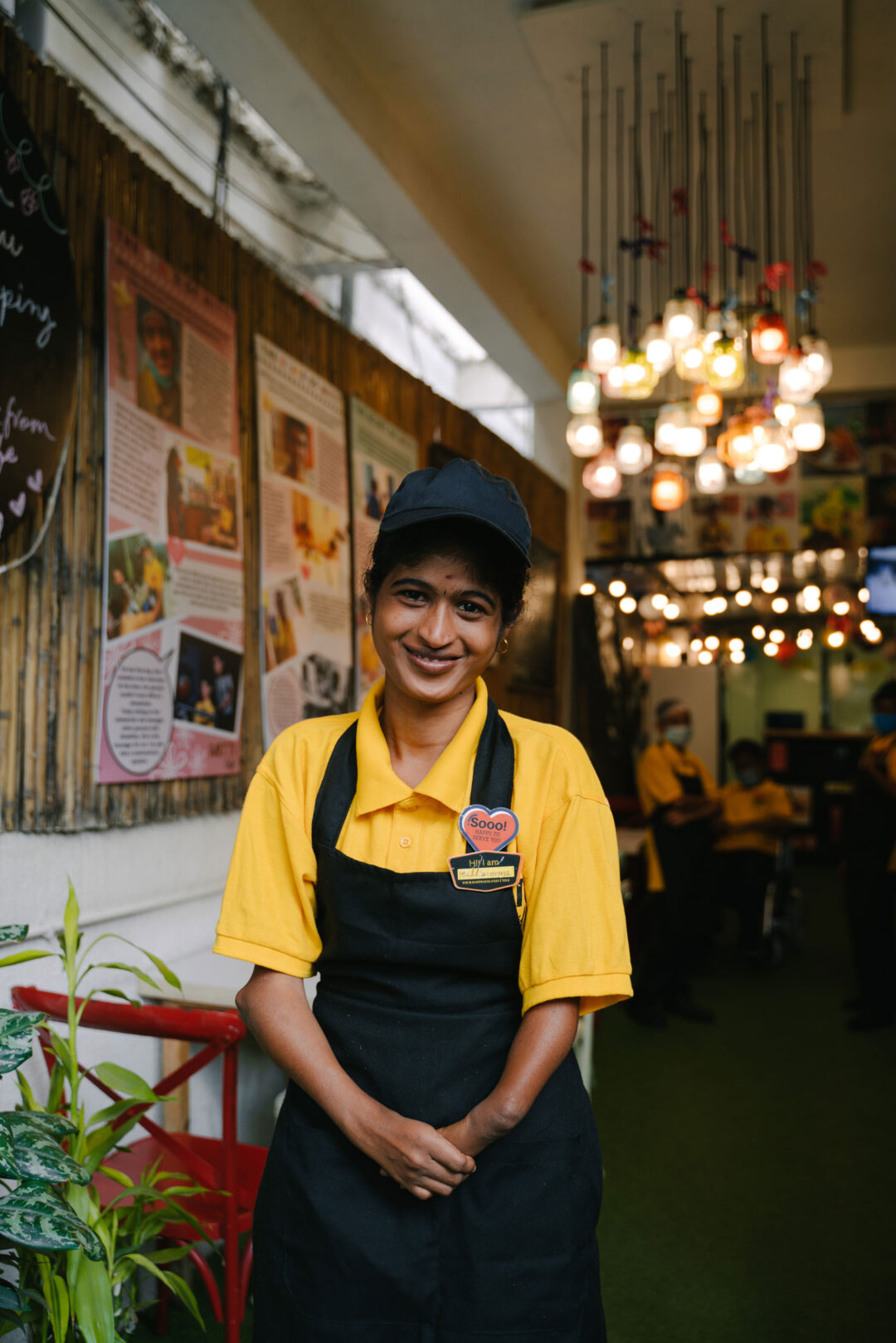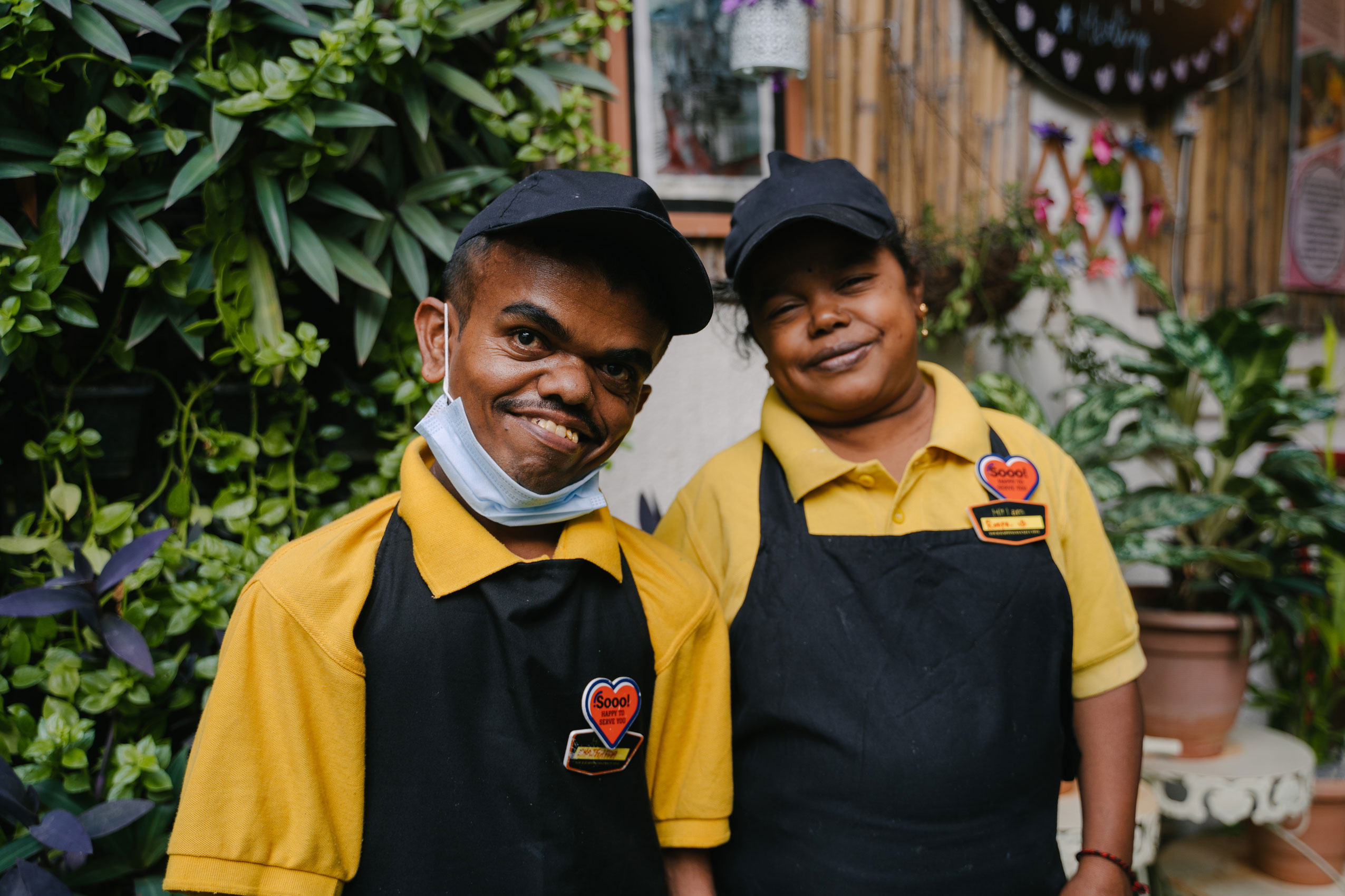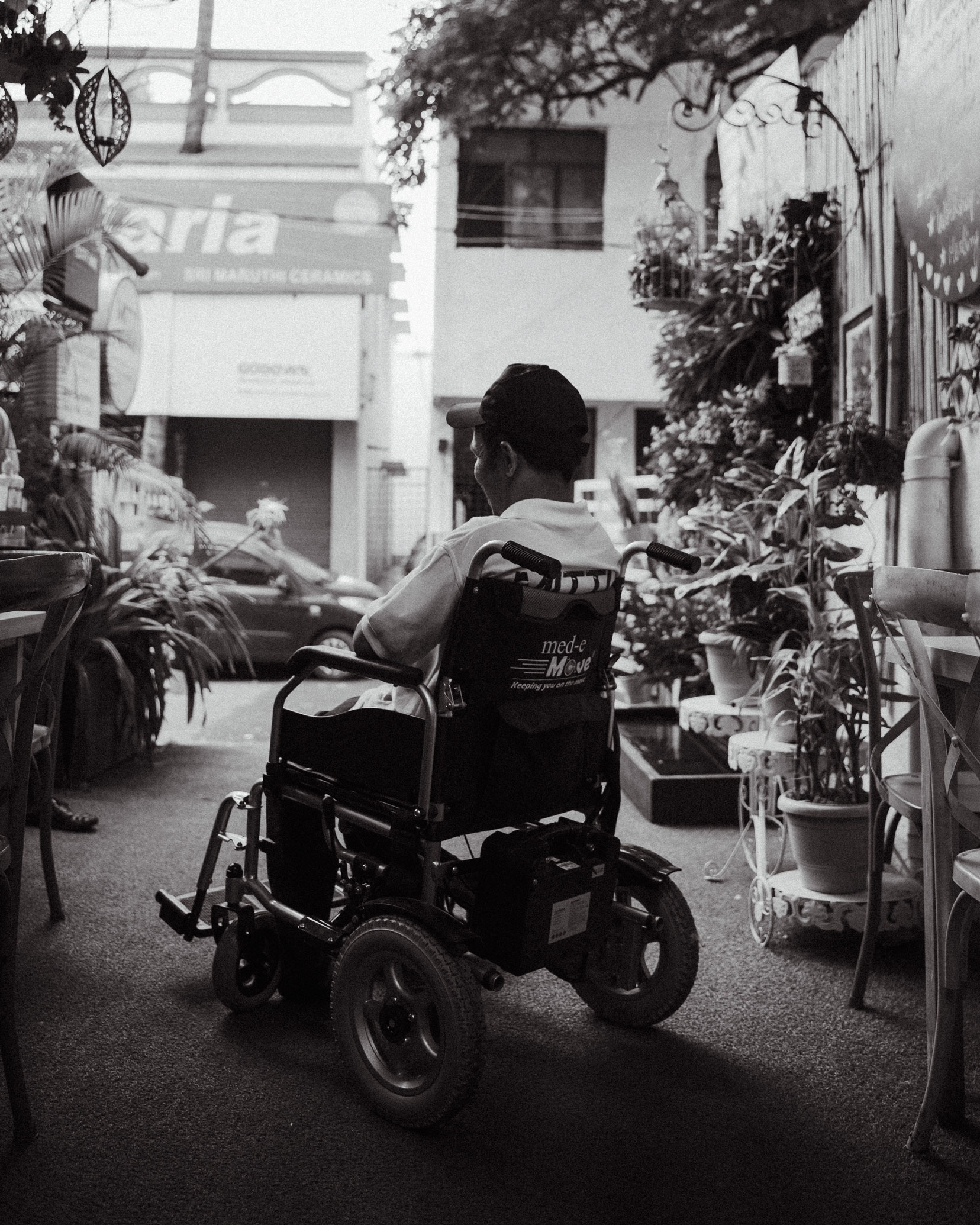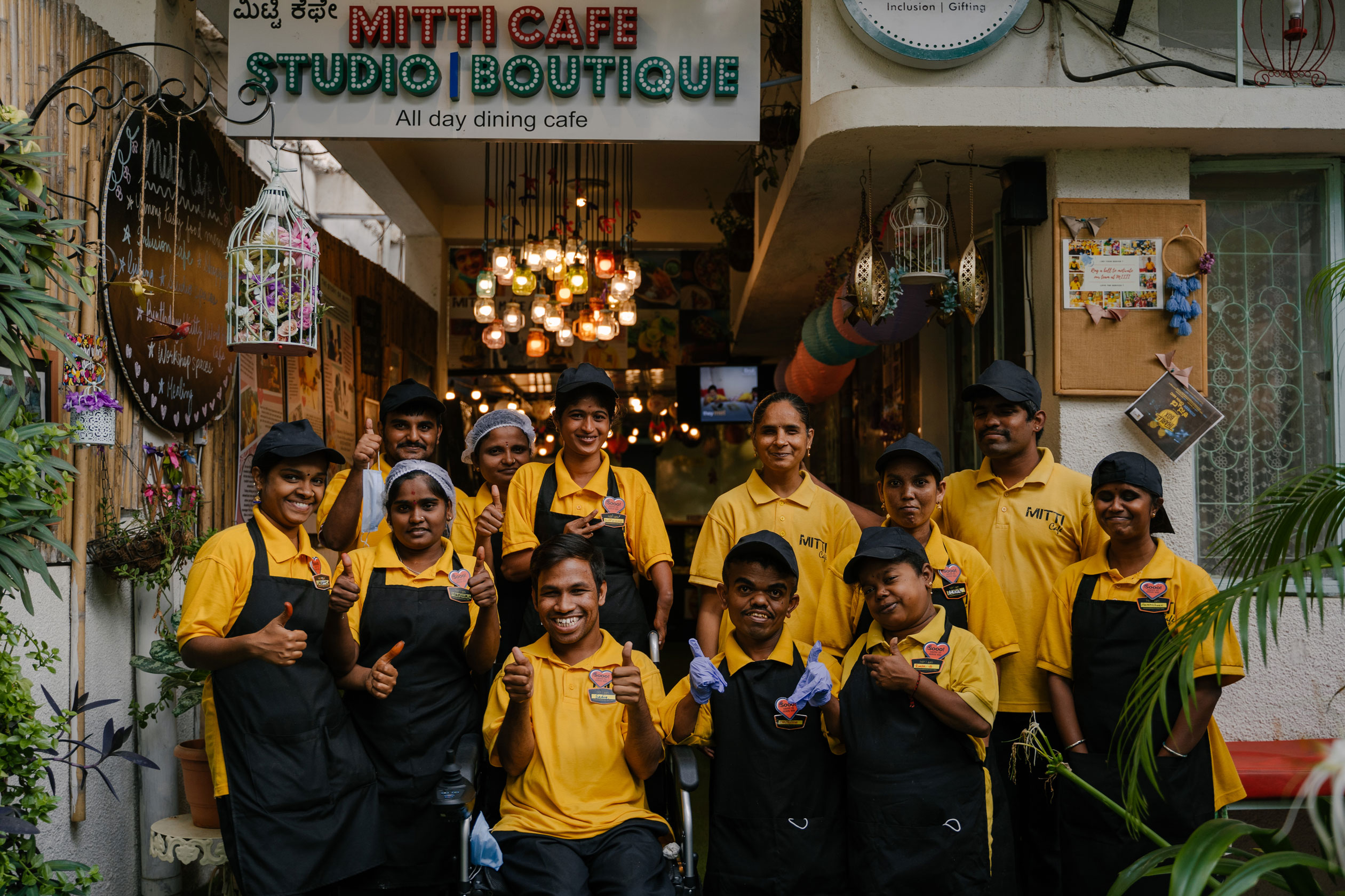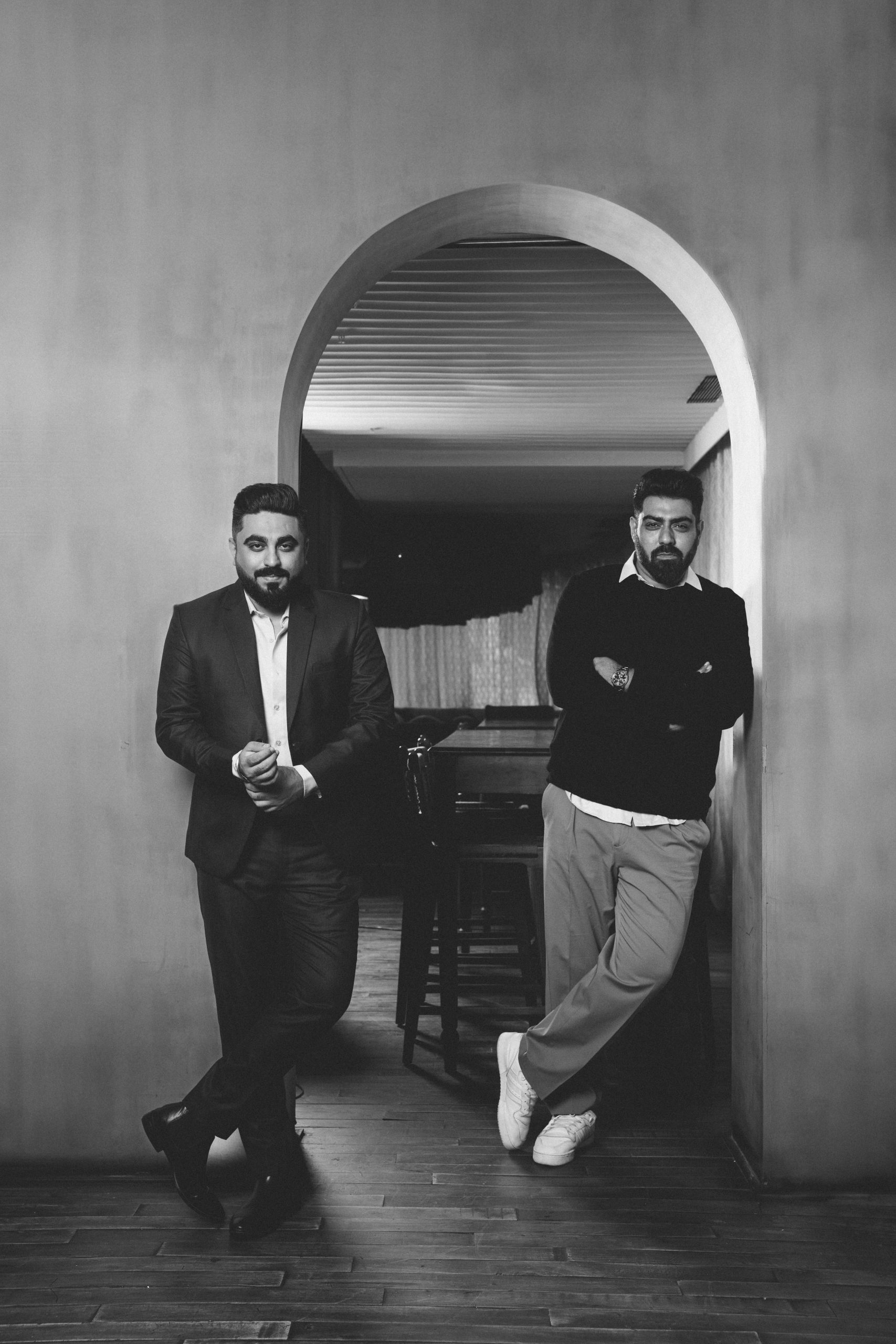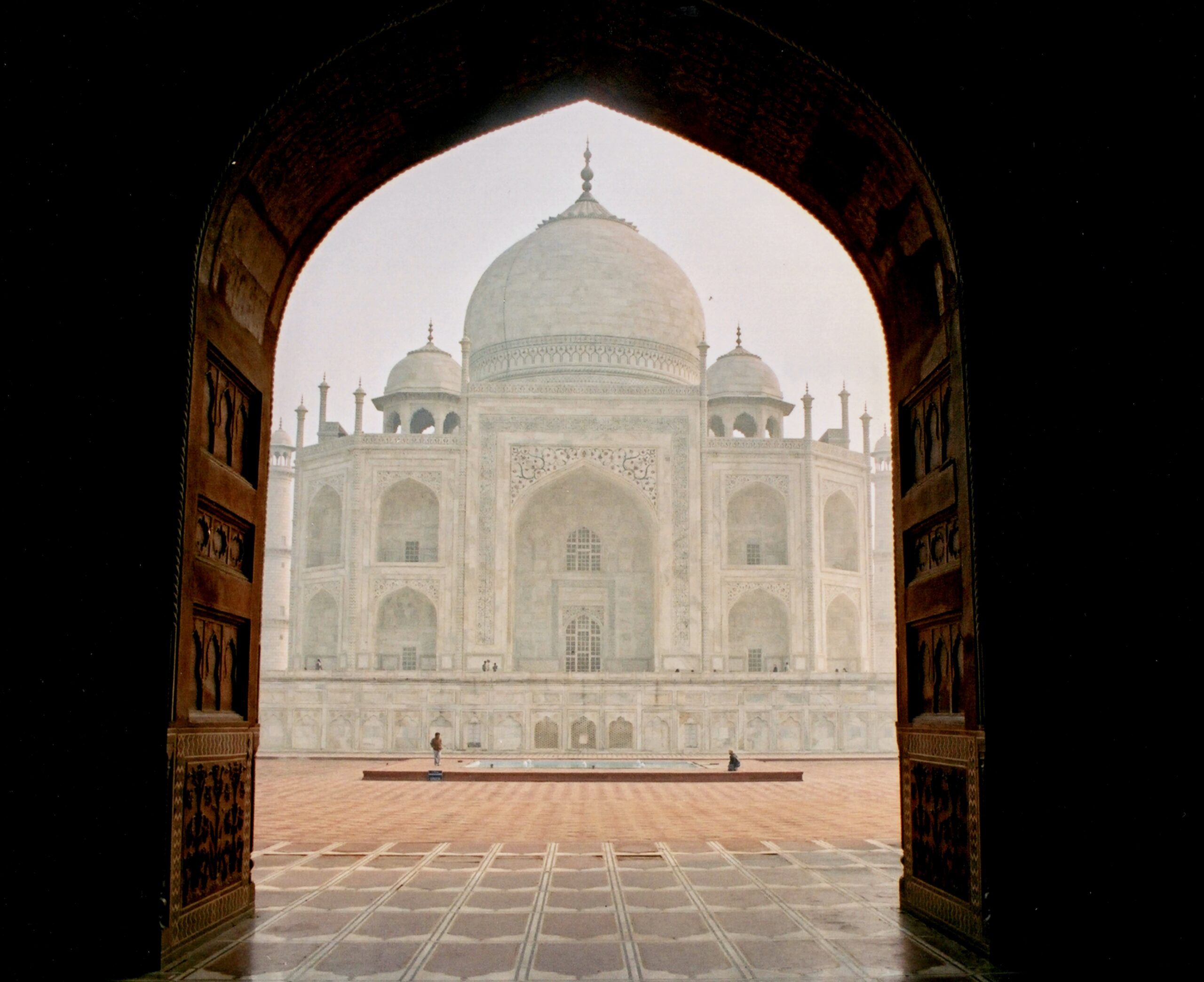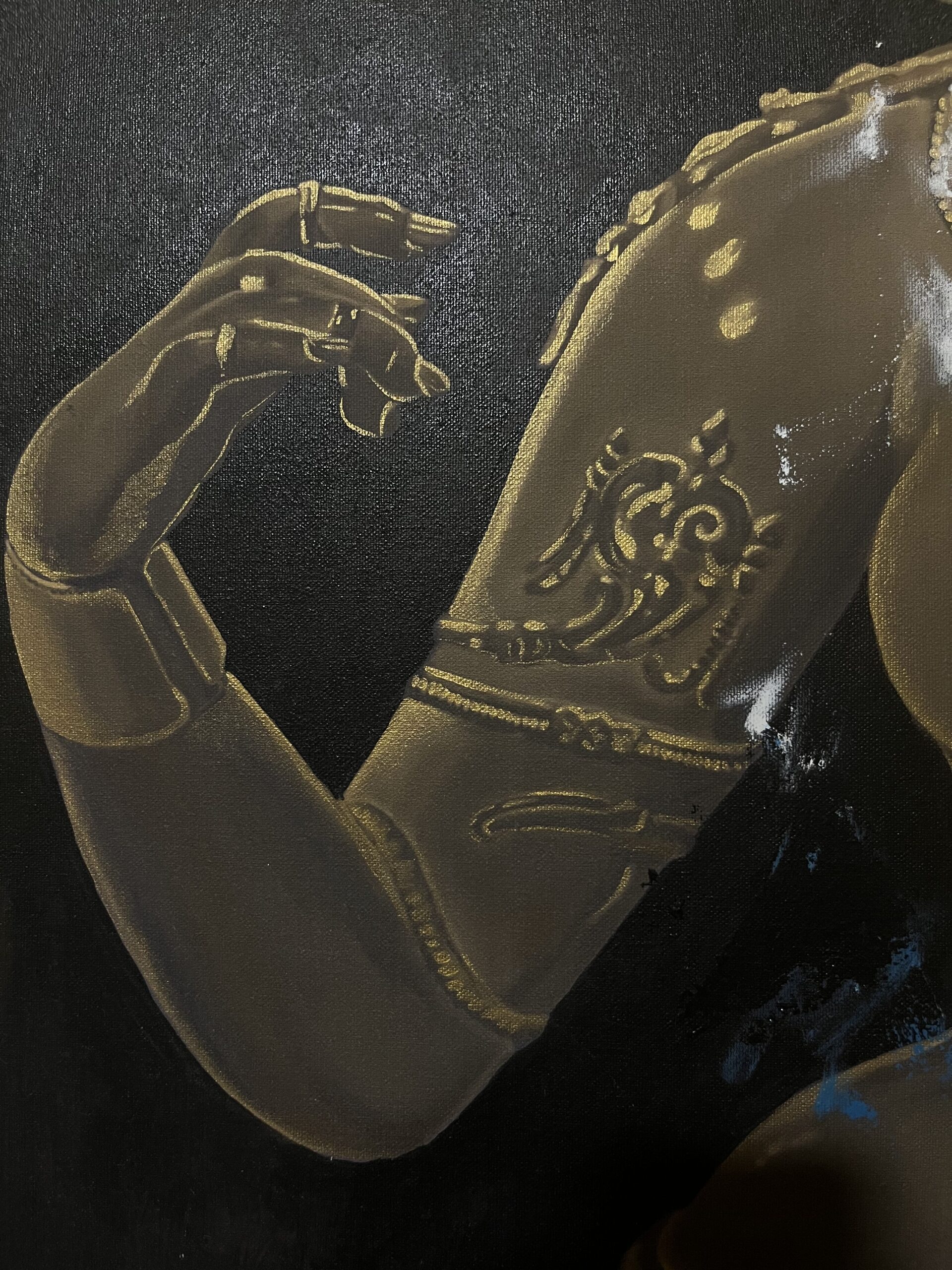She has just been awarded the United Nations Intercultural Innovation Award powered by BMW-UNAOC for upskilling and employing over 800 differently-abled individuals. Yes, Alina Alam is making a discernible difference by channelling hope and dignity, one Mitti Cafe at a time.
“There are those who destroy, those who build and those who remain complicit in silence.” states Alina Alam, deeply impacted by the Roman emperor Nero Claudius Caesar who represents the cruelty that destroys the world – he burned down an entire city just to build a palace for himself while a passive citizenry watched. “There have been tyrants throughout history and their success depended to a large extent on the passive nature of the citizenry who stood by and watched while crimes were perpetrated without fear of accountability. The horror of Nero for me is a metaphor for this kind of egregious cruelty and indifference. I cannot stay silent in the face of great injustice,” she emphasises.
Alam, then 24, vowed to never be one of those passive bystanders. “What triggers me most is human helplessness. When I see it, I want to do something because I was raised in a family where we didn’t always have new clothes on Eid, but there was always the joy of giving back to society in some way.”
Years later, she sits on a moonlit balcony of Mitti Cafe, her inclusion-driven entrepreneurial success story and talks about her journey so far. At 27, Alina is already a counterpoint to the Neros running amok across social, economic and political scenarios. And the idea of providing dignity and equal opportunity to all began in a dilapidated tin shed in Hubli with “empty pockets and generations of rats running around!”
The Magic of Human Potential
Mitti Cafe did not have an easy start. Alina recalls, “Nearly every business incubation centre rejected my idea and during one meeting, three judges unanimously gave me 1 out 5 points for passion! But I believed that something good would happen if I just invested all my heart and the best intentions in what I was doing. Confidence is often glamorized in entrepreneurs but the fact that I was anchored in my faith, helped me overcome the fears and the doubts. Also to succeed at anything, you have to have zid (stubbornness), a rhino skin and a faith in the universe and the goodness of people even though we are constantly flooded with negative news.”
She continues, “You just have to ask for help and it is given to you – every time I have needed it, I have always had the support of the community. In Hubli, students came together to clean the shed, a local electrician refused to charge me even Rs 300, a printer said he would charge me double once the cafe succeeded and everything from the second hand fridge to the spoons, to the oven to the vessels was donated.”
It was the possibility of helping people reach their full human potential that remained at the forefront of all her initiatives because in her eyes, disability does not exist, the magic of possibility does.
Disability? No Such Thing!
For Alina, the issues pertaining to the disabled are very personal. “My grandmother was wheelchair bound but all I could see was ability because as a child I needed so much from her. I was dependent on her for everything from bathing to eating. Every child has their set of disabilities, right? As I grew up, the world’s perception about disability really confused me because till date, I cannot see how my grandmother was any less able than any of us or how the 116 people that Mitti Cafe employs are less capable than those they serve.” She shares.
Since then Mitti Cafe has been embraced by tech parks and companies like Wipro, Infosys, ANZ and many more. The same community spirit that helped Mitti Cafe in the beginning, sustained it during the pandemic too.
“When we were struggling, we went back to people and asked for help and in less than 15 days, we were able to raise over Rs 9 million to not just help our staff, open new outlets but to also supply meals to migrants and those hit the most by the pandemic.” Alina discloses.
Mitti Cafe has over the years trained and employed many people who were living on streets and to see them now hand out over 13 lakh ‘Karuna’ meals to the needy during the pandemic, was a magical moment for Alina. As she says, “It showed us that the world of our dreams is possible and achievable. There are billions of us and each one has the potential to do so much good. If all of us reached out to help one another, can you imagine what a difference we would be able to make?” It was the possibility of helping people reach their full human potential that remained at the forefront of all of Alina’s initiatives because in her eyes, disability does not exist, the magic of possibility does.
The Mitti Cafe USP
“Our stories really define us.” says Alina.
“Keerthi who came to us for an interview crawling because her family could not afford a wheelchair is now an outlet manager.
Rupa and Bhaiyrappa who have dwarfism, met at an event, fell in love and just two
months ago, got married. At 27, I did Rupa’s ‘Kanyadaan’ as she has no parents. Bhaiyrappa blushes as he serves us some ‘aam panna,’ and his big smile and shining eyes radiate joy.
Alam continues, stating, “He (Bhaiyrappa) was rejected from 80 jobs, had been bullied all his life and then he came to us and we got lucky! We complain about the pandemic, but imagine being in a lockdown your entire lifetime and being denied opportunities because work spaces are inaccessible. Bhaiyrappa and over 7 crore people with disabilities in India are made to believe that they will never be accepted in society, never find love, never work with dignity. And yet, at Mitti Cafe, we have repeatedly seen the seemingly impossible becoming possible.”
Over the years, 800 adults have been trained to be self-dependent at Mitti Café, including Sabiha who has multiple sclerosis. Although she could not work with Mitti Café, she had the gift of the gab and today, runs a Kirana store, employs another person with a disability, and is one of Alina’s most dependable vendors.
Two of Mitti Cafe’s wheelchair-bound staff members, Ratna and Basavaraj, have also found love and gotten married. Alina states, “The problem is not with people with disabilities. Mitti Cafe is all about providing economic independence with dignity to those who have been denied equality. That we are a women driven leadership initiative, is also very significant to us.”
The Value Of Sensitisation
“We have worked with adults with schizophrenia, depression and Down Syndrome. Many of them are thorough perfectionists. For instance, a cook in one of the many Mitti Cafe kitchens was unable to get along with Taushit, a young man with Down syndrome. Taushit had, in the past, mistakenly gone into the ladies’ washroom a few times in his workplace. But we continued with the sensitisation process and not only did the community surrounding him not give up on him, but the cook who had once said he could not cope with Taushit now cannot cope without him!”
Development Has To Be Inclusive, Always
Development, says Alina, can only be inclusive – and the only way forward is by involving the most vulnerable factions of society, by providing them with opportunities and mindful care. She further expands, “There is a huge difference between development and growth. Growth can be cancerous. A few conglomerates can grow and the GDP will rise but development has to keep the most vulnerable at the heart of the nation’s agenda. At Mitti Cafe, we want to reach out to the billionth Keerthi who deserves economic independence, not as a privilege, but as a right.”
In The End, We Are All Alike
The universality of the human experience inspired Alina to think of the word ‘mitti’ (dirt/mud). As she explains it “The name represents unity in diversity. We may come from any ideology, geography, faith or gender or may be rich or poor, but from mud we have all come and to mud, we will all go.” This passion to create equity comes from the deep belief that to help those in need is not “social work” but a “social duty.” Alina concludes, stating, “Through the course of my work, I have seen the most vulnerable and disadvantaged people demonstrating immense generosity and we with our specific privileges must help those we can. As poet Dushyant Kumar wrote, ‘mere seene mein nahi to tere seene mein sahi..ho kahin bhi aag lekin aag jalni chahiye’ (Be it in my heart or yours, a fire must be kindled).”
Text by Reema Moudgil
Edited by Jackie Pinto
Photographs by Rohit Bijoy
